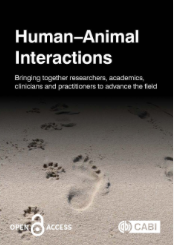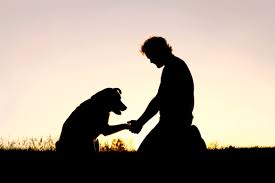
Holiday time is an Internationally celebrated joyous time at the end of each year. A time to think about memories of this special time and family and friends and look forward to a new year.
Remembering Lost Loved Ones
For some, the holidays represent a time to remember lost loved ones – whether a recent loss or years’ passed losses. Memories of significant others who meant so much to us, arise at this time – and restart or exaggerate the grieving process.

What about grief for a pet?
Many understand grief when discussing human loss, there are, however, other types of loss that are not acknowledged or given a similar amount of attention by society. Grief due to these ‘socially unendorsed’ losses is referred to as ‘disenfranchised grief’ and can include death by suicide, a lost pregnancy/miscarriage, death from AIDS, and the death of a pet.
Mourning the loss of a pet is difficult, but social stigma can make the process even harder and leave individuals to grieve in silence. We (society) often don’t regard the loss of a pet on the same level as a human death, even though many owners consider their furry friends an integral part of the family.
New Awareness in Progress
 A very recent article in the journal Human–Animal Interactions, discusses pet loss and according to the two authors, Dr. Michelle Crossley, an assistant professor at Rhode Island College and Colleen Rolland, a pet loss grief specialist and the president of the Association for Pet Loss and Bereavement, “grieving the loss of a pet is still trivialized in today’s society.”
A very recent article in the journal Human–Animal Interactions, discusses pet loss and according to the two authors, Dr. Michelle Crossley, an assistant professor at Rhode Island College and Colleen Rolland, a pet loss grief specialist and the president of the Association for Pet Loss and Bereavement, “grieving the loss of a pet is still trivialized in today’s society.”
According to experts in this area, ‘disenfranchised grief’ is a grief reaction after a loss that is important to the individual though unacknowledged as important enough to grieve or ask for social support from society. When relationships are not as highly valued by society, individuals are more likely to experience disenfranchised grief after a loss that cannot be resolved and may become complicated grief.
Pets are a Complicated Relationship
The attachment bond and meanings of the human-animal relationship create complexities in the loss of the companion animal, and the grieving that follows this loss. It can be as traumatic as the grief one experiences from the loss of a family member or even more in some cases than a human. One factor that complicates one’s psychological well-being after this loss is the belief of others that pets are not worthy of being grieved over because a companion animal may be viewed as replaceable, whereas a human is not. The stigma associated with pet loss, compounded by the feeling of losing a part of the family, can lead individuals to avoid openly grieving the loss of their companion animals and can intensify symptoms of depression.
Our first encounter with loss and death often occurs in childhood
Given that companion animals have a shorter life expectancy than humans, it is not uncommon for the death of a companion animal to not only be the very first encounter one has with death but is also something that can happen multiple times in one’s lifetime. The grieving process is an important experience that one must face when the death of an important relationship occurs and a factor that has been found to impact this process is one’s level of attachment. Unfortunately both children and adults can find themselves adrift at sea without the empathetic ear of friends or family to help them manage their loss.
Lack of professional support
Grieving pet owners will often turn to fellow pet owners for comfort during their mourning. Support for grieving for a pet is not only absent from broader society but from health care professionals. Not all therapists or counselors may be prepared to help someone deal with pet loss. Very few academic training programs require courses that focus specifically on grief counseling, Dr. Crossley adds, “I do believe that there are specific nuances to working with pet loss.” It could be especially difficult for therapists who have not experienced strong bonds with pets or who have not had specific training, which could lead to minimizing the client’s loss in an unhelpful way.
Only recently, some veterinary schools are incorporating courses on mental health, end-of-life pet care and issues surrounding pet loss into their curriculum.
How to Manage Grief from Pet Loss
Psychology Today suggests strategies for coping and include:
- Take your time to grieve
- Have a memorial service
- Utilize support resources
- Call pet loss hotlines: (See links and numbers below)
- Join a support group
- Make a contribution to an organization that helps animals
- Plant a tree in their memory
- Make a collage
- Custom portrait, blanket, pillow, or stuffed animal
- Memory book
- Use a pet loss journal
- Create a memorial online
- Establish a fund in your pet’s name to help other pet parents who can’t afford veterinary treatment.
- Donate your time to shelters
- Read books about pet loss
- Finally, when you’re ready to open your heart again… adopt if you can.
There currently are a number of organizations and groups that offer telephone help lines, chat rooms, online services and referral services to grieving pet parents and families.
Resources include:
- The Association for Pet Loss and Bereavement offer online web chat and a regular online pet loss grief support group, as well as a Facebook groups [Link to website] They even offer ‘anticipatory grief support’ at the website and a video support group.
- VCA West Los Angeles Animal Hospital Pet Loss Support [Link to website]
- Cornell University College of Veterinary Medicine, Pet Loss Support Hotline (607-218-7457) [Link to website]
- SPCA of Texas pet grief helpline (214-461-5131)
- ASPCA (877) GRIEF-10 operated from 12:00 p.m. to 12:00 a.m. daily
- Lap of Love (855) 955-5683 operated from 7:00 a.m. to 11:00 p.m.
- Blue Cross for Pets in the UK [Link to website]
Things are changing for the better.
Both veterinarian and human health care professionals are becoming more aware of the issues surrounding pet loss – thus more are discussing this and more help is available. If you feel a need to reach out to a Veterinarian or Counselor, ask them first if they are familiar with grieving and pet loss. (just as you might ask a mechanic if they know how to repair your make or model of car) Be a sophisticated and knowledgeable consumer & reach out to a ‘pet colleague’ who may need this information.
We need to take pet loss seriously!
[Link to Scientific American Article]
